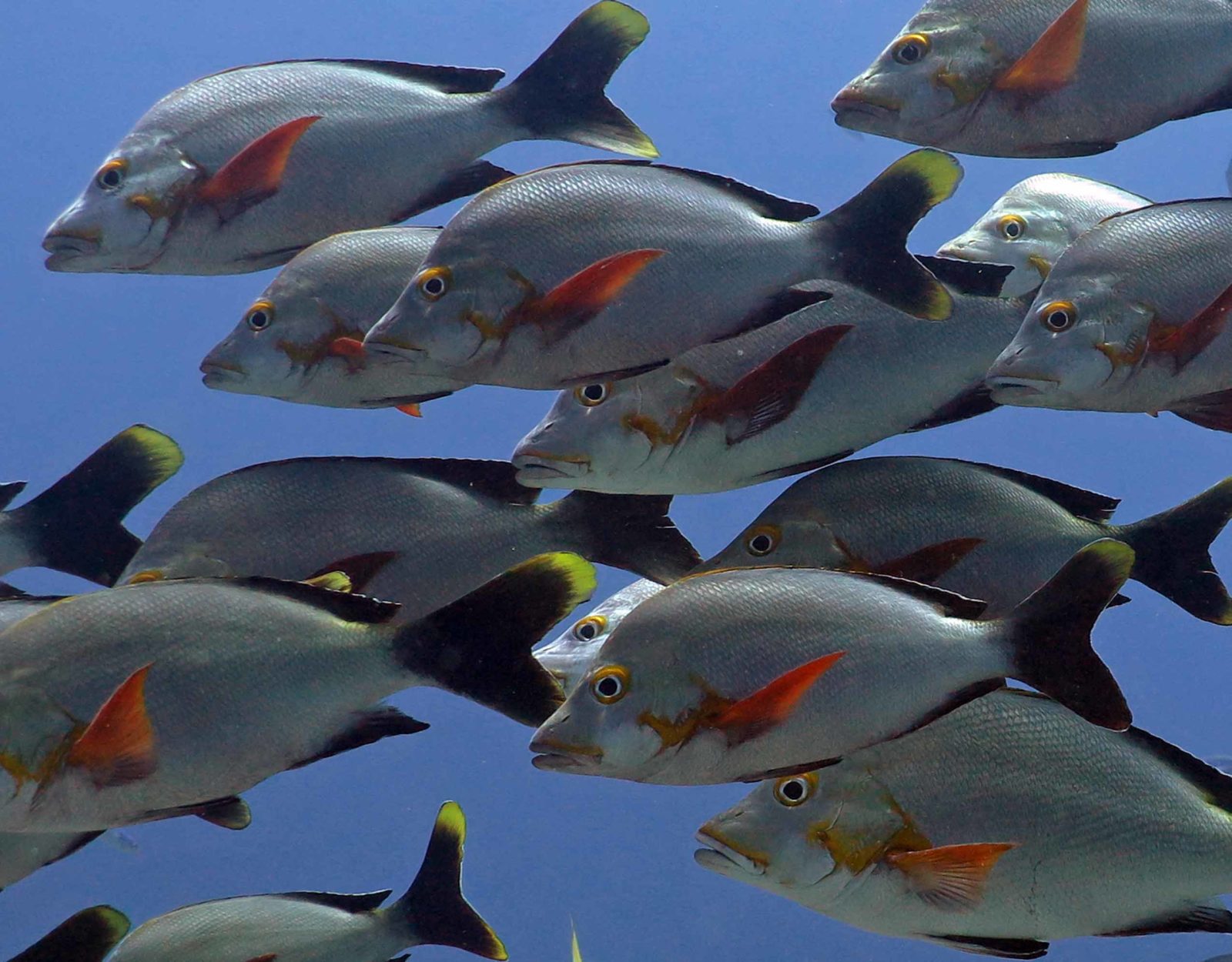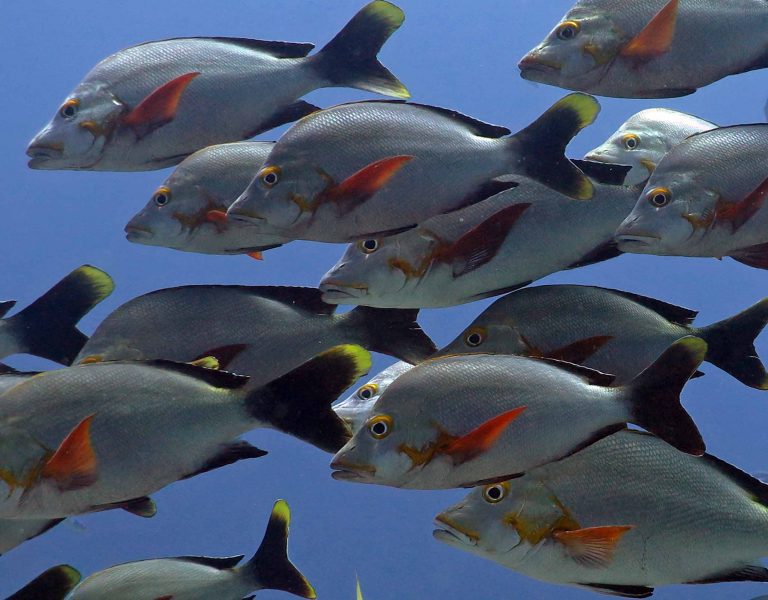Fish are evolving with significantly smaller eyes and tails on reefs on which they are safe from shark predation.

A new scientific study claims to provide the first evidence from the field of body-shape changes in fish caused by human-driven declines in shark populations, and to highlight the effects on marine eco-systems of losing the oceans’ apex predators.
Led by researchers from the University of Miami’s Rosenstiel School of Marine & Atmospheric Science in the USA, researchers analysed more than 600 fish from seven species on two almost-identical neighbouring coral-reef systems off north-western Australia.
One of the systems, Scott Reefs, had been targeted by shark-fishers for centuries, but shark-fishing had not been permitted on the other reef, the protected Rowley Shoals.
Shark-fishing had intensified on Scott Reefs in recent decades to fuel demand for shark-fin soup, say the researchers, resulting in its shark populations being “decimated”, while at Rowley Shoals they remained healthy.
The team digitally analysed photographs of the reef fish, measuring their body length and width, and eye and tail areas.
At Scott Reefs the eyes of fish on which sharks would normally prey were on average up to 46% smaller than those of comparable fish at Rowley Shoals, while their tails were on average up to 40% smaller.
The fish studied were blue-stripe, chequered, humpback red and Bohar snapper, daisy and blunt-head parrotfish and bigeye bream.
“Eye-size is critical for detecting predators, especially under low-light conditions when many sharks usually hunt, and tail-shape enables burst speed and rapid escape from sharks,” said the study’s lead author, Neil Hammerschlag.
“Our results suggest that removals of sharks by humans have potentially caused a reduction in the size of fish body parts that are important for shark detection and evasion.
“There is an urgent need to understand the potential cascading eco-system consequences of shark declines, especially on coral reefs that we rely heavily on for tourism, food and recreation.”
The study is published in Marine Ecology Progress here
Divernet – The Biggest Online Resource for Scuba Divers
15-Jan-18

